We've found the 9 best sunscreens for sensitive skin that offer protection without causing any irritation
From lightweight fluids to hydrating creams, our beauty team give these kind-to-skin formulas their stamp of approval for sensitive skin...
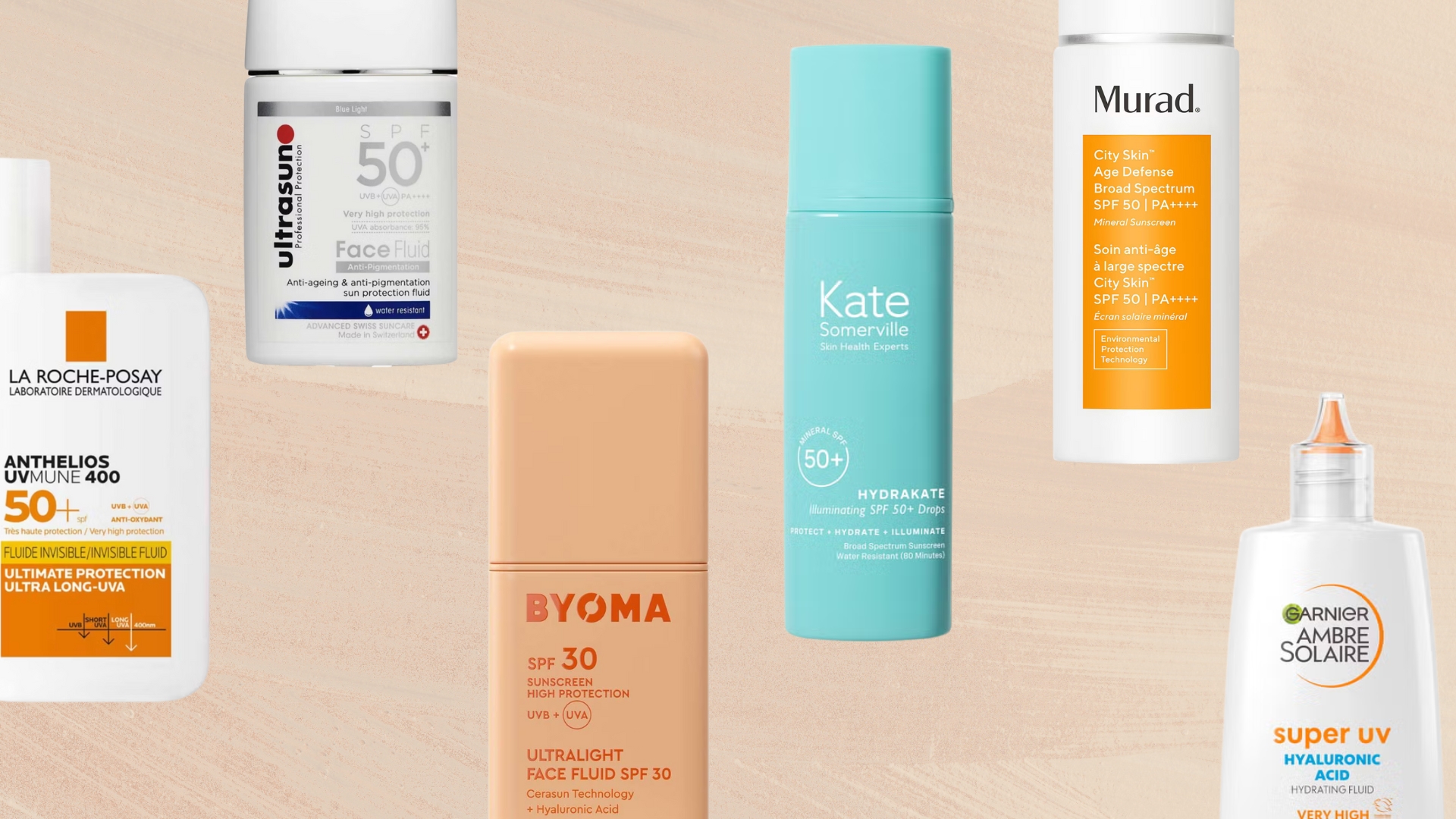
As with trialling any new skincare products, those with sensitive complexions may feel sceptical when it comes to introducing a sunscreen into their everyday routine, in fear of it aggravating the skin and causing irritation.
While the main priority of a sunscreen is to effectively protect your skin from the harmful effects of UV rays, there are actually plenty of benefits of wearing SPF every day, such as preventing pigmentation and encouraging a plumper, radiant complexion. However, testing a new formula can feel risky for those with sensitive skin: "People with sensitive skin may find that some sunscreens can cause irritation, stinging, burning, and redness when applied," says advanced aesthetic doctor Dr. Preema Vig.
Thankfully, as a beauty team we collectively boast years of testing dozens of sunscreens (and best face moisturisers with SPF) on the market and know exactly what ingredients and formulas can be relied on for sensitive skin types. So, we've collated our knowledge and rounded up the 9 very best sunscreens for sensitive skin that will offer protection, minus any irritation.
The best sunscreens for sensitive skin, reviewed by our beauty team
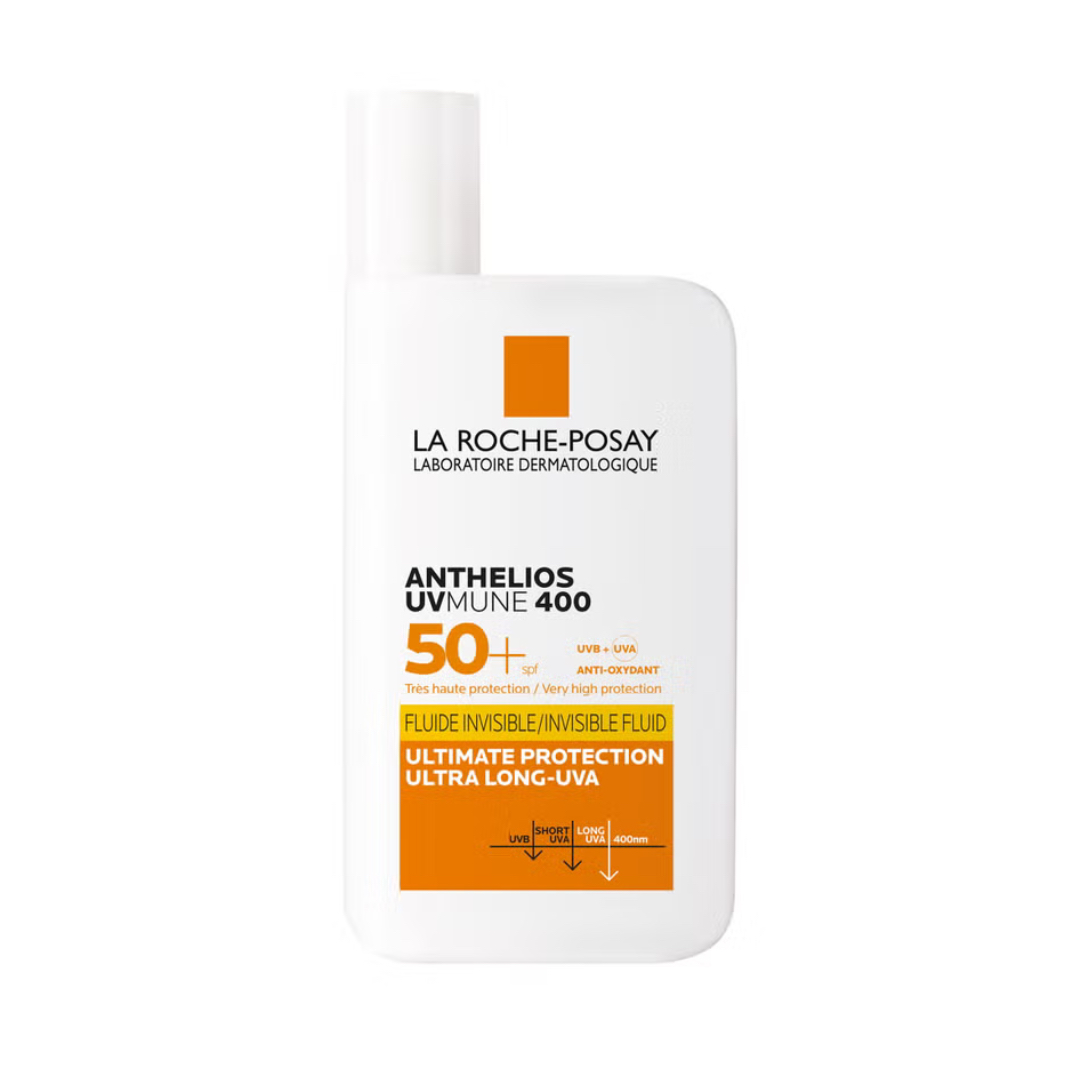
RRP: £20 for 50ml | Texture: Fluid
Fragrance-free, tested on sensitive skin, hypoallergenic and with portable, slimline packaging, this La Roche-Posay formula ticks the boxes with ultra-high SPF 50+ protection. Typically finding sunscreens to break out her skin in angry red spots, tester Rachael Martin says: "After wearing this every day for a week I haven't seen so much as a blemish. I love how quickly it sinks in and that you can't see it once it's on; there's no white cast or oily residue and I found it easy to apply makeup over the top without it smudging or slipping."
Pros: Great protection, non-sticky
Cons: Runny consistency can make application difficult
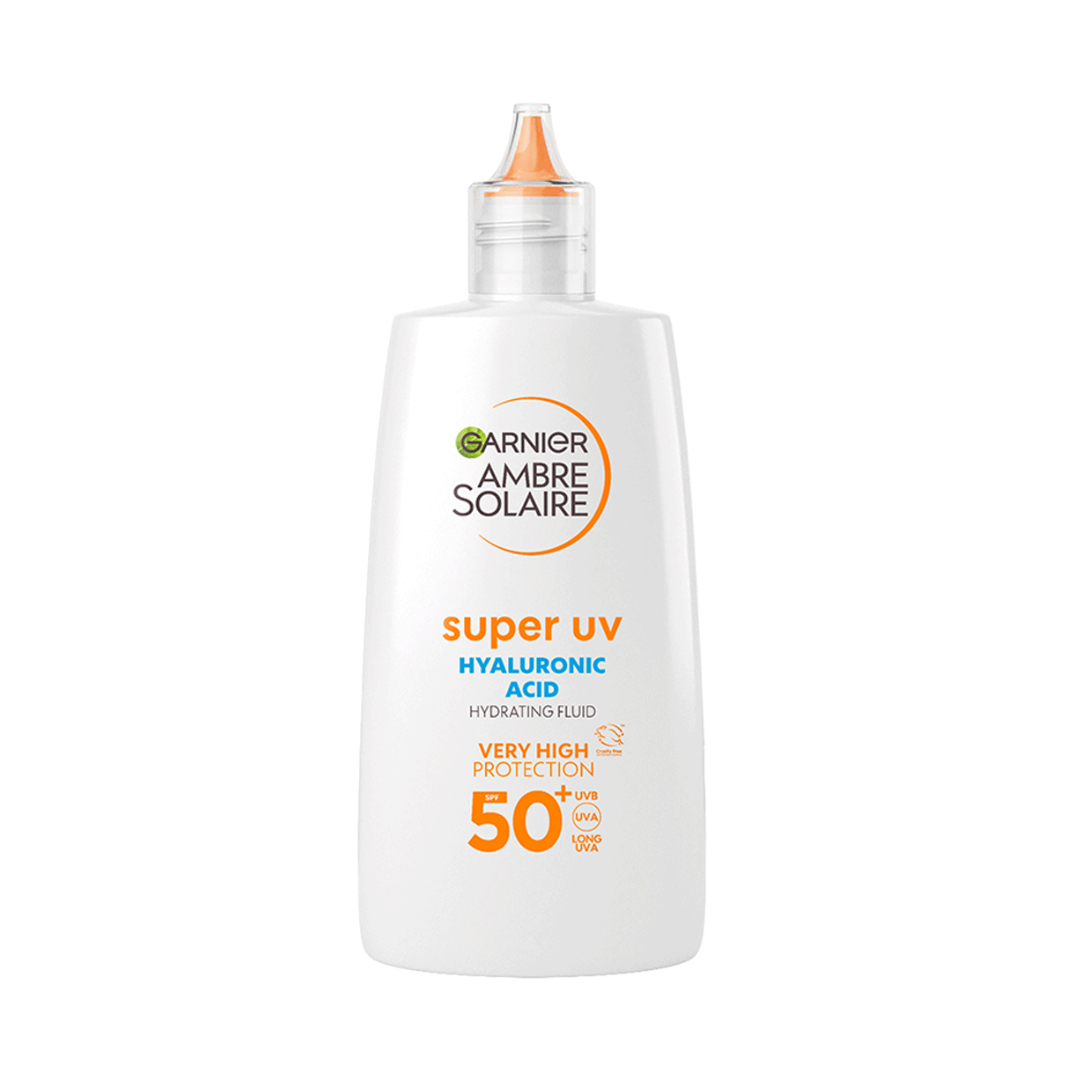
RRP: £13 for 40ml | Texture: Fluid
Super lightweight on the skin, this Garnier Ambre Solaire SPF is a bit of a high street hero. With high, broad spectrum protection, this fluid is super easy to rub into the skin without leaving behind a greasy feel or being detectable to the eye. Enriched with hydrating hyaluronic acid and vitamin E, this formula is also non-comedogenic (a term that means it won't clog pores), making it a great choice for blemish-prone skin, too. It's very well-loved among beauty editors, including contributing beauty editor Lucy Abbersteen, who regularly recommends it as one of her favourite affordable sunscreens to those looking to add a new one to their skincare routine.
Pros: Affordable, lightweight
Cons: Pretty runny
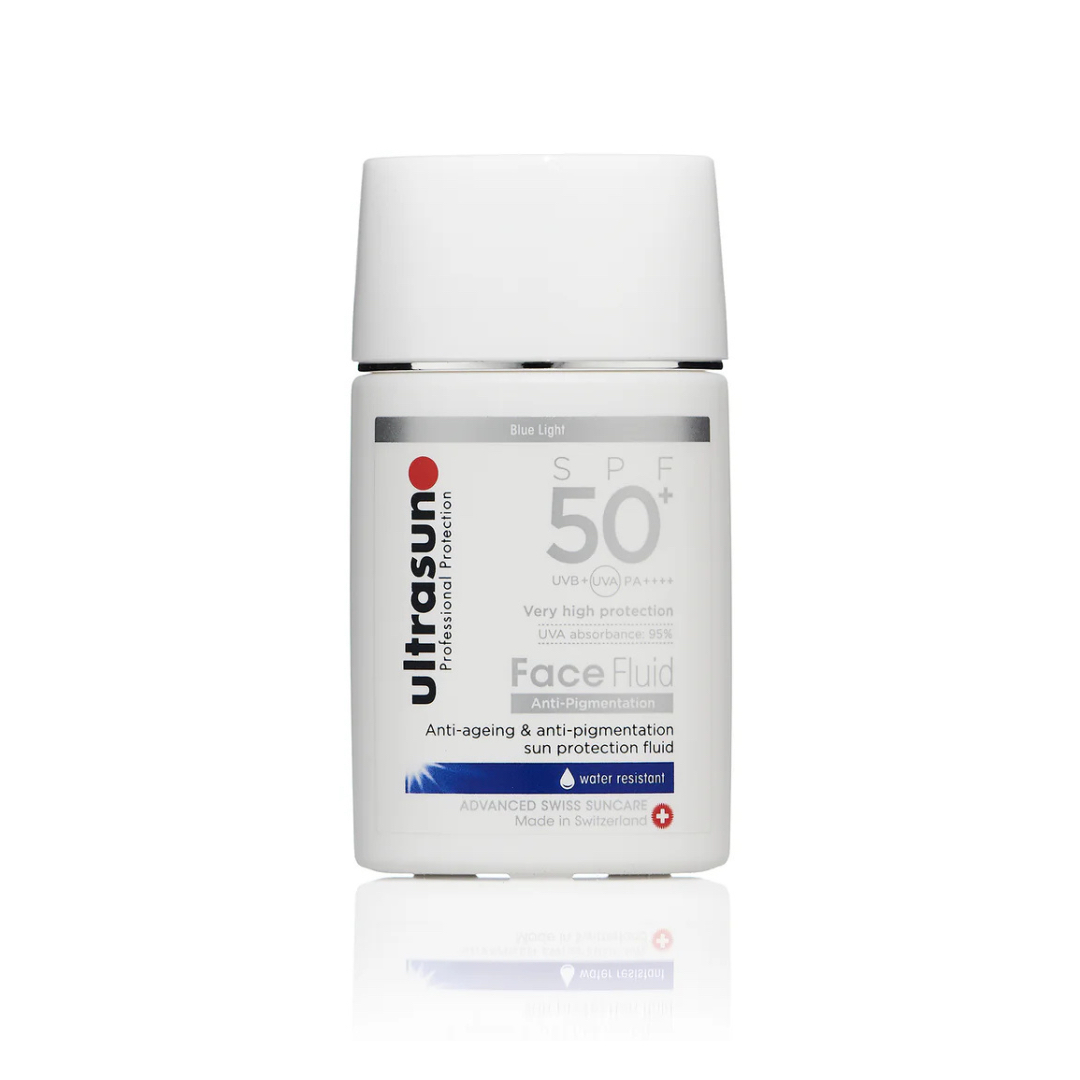
RRP: £28 for 40ml | Texture: Fluid
A brand that has very sensitive skin at the centre of its product development, this relative newcomer to Ultrasun's product range is an excellent one. With high-factor protection, the formula contains rainbow algae, an ingredient that works to reduce pigmentation; the brand has found that a week of use does so by 27%. Not only that, though this water-resistant formula isn't super runny, it blends into the skin with ease and feels lightweight and non-greasy once you've applied it. What's more, it's non-comedogenic, meaning it won't clog pores, making it ideal for blemish-prone skin. It's a truly excellent buy.
Pros: Non-comedogenic; high-factor protection
Cons: On the pricey side
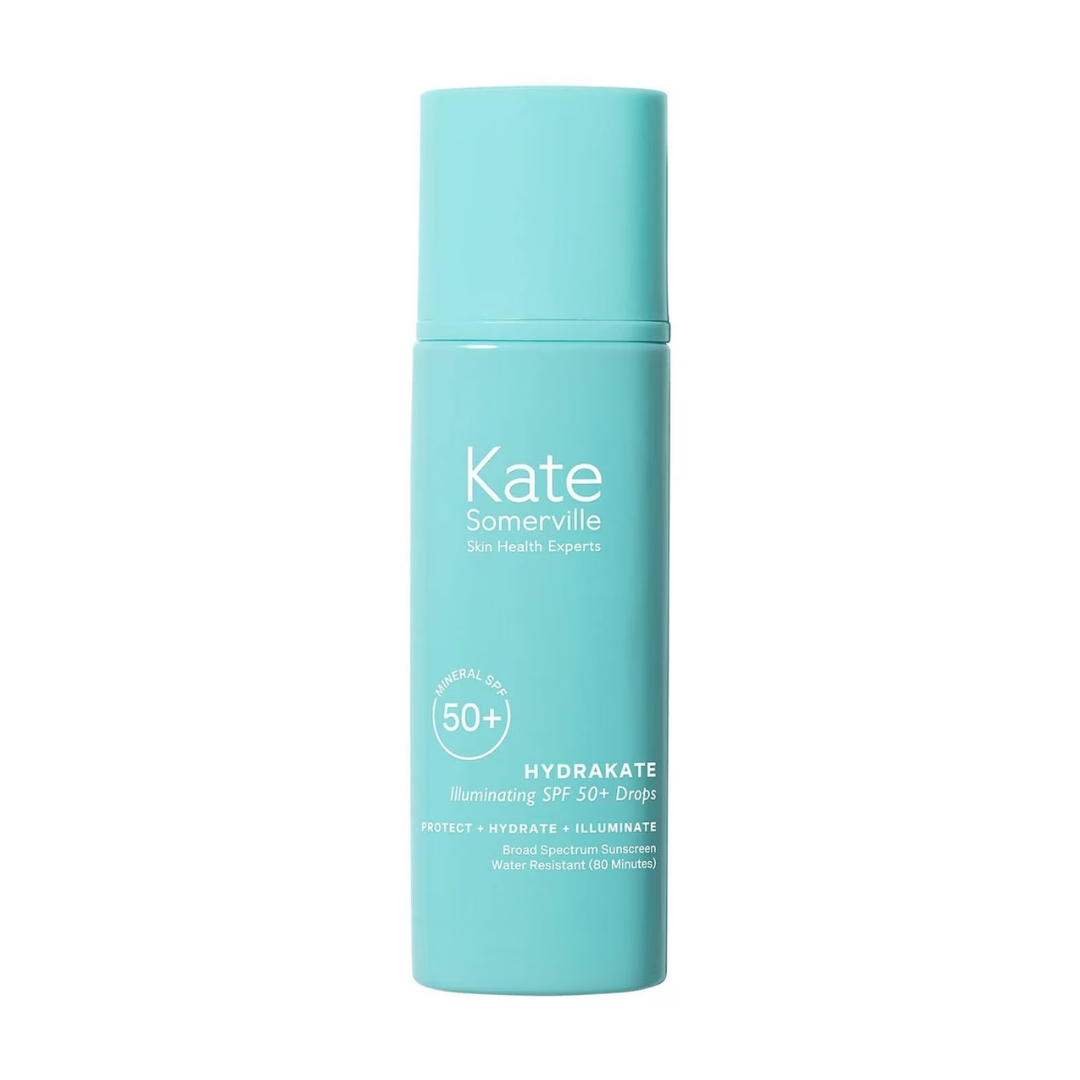
RRP: £39 | Texture: Fluid
Kate Somerville's water-resistant mineral sunscreen offers SPF 50, while also arriving equipped with ectoin for hydration and sheer peach coloured pigments to even the skin tone. Digital Beauty Writer, Sennen Prickett hailed its lightweight formula that makes for a great base for makeup, she says: "It seamlessly blends into my skin, leaving my complexion with a radiant glow that makes for a healthy illuminated base whether you're applying makeup or opting for natural no-makeup day. It also withholds pilling when applied underneath makeup - which is usually a bugbear of mine."
Pros: Radiant finish, lightweight and comfortable to wear
Reasons to avoid: If you have particularly oil skin or prefer a matte finish
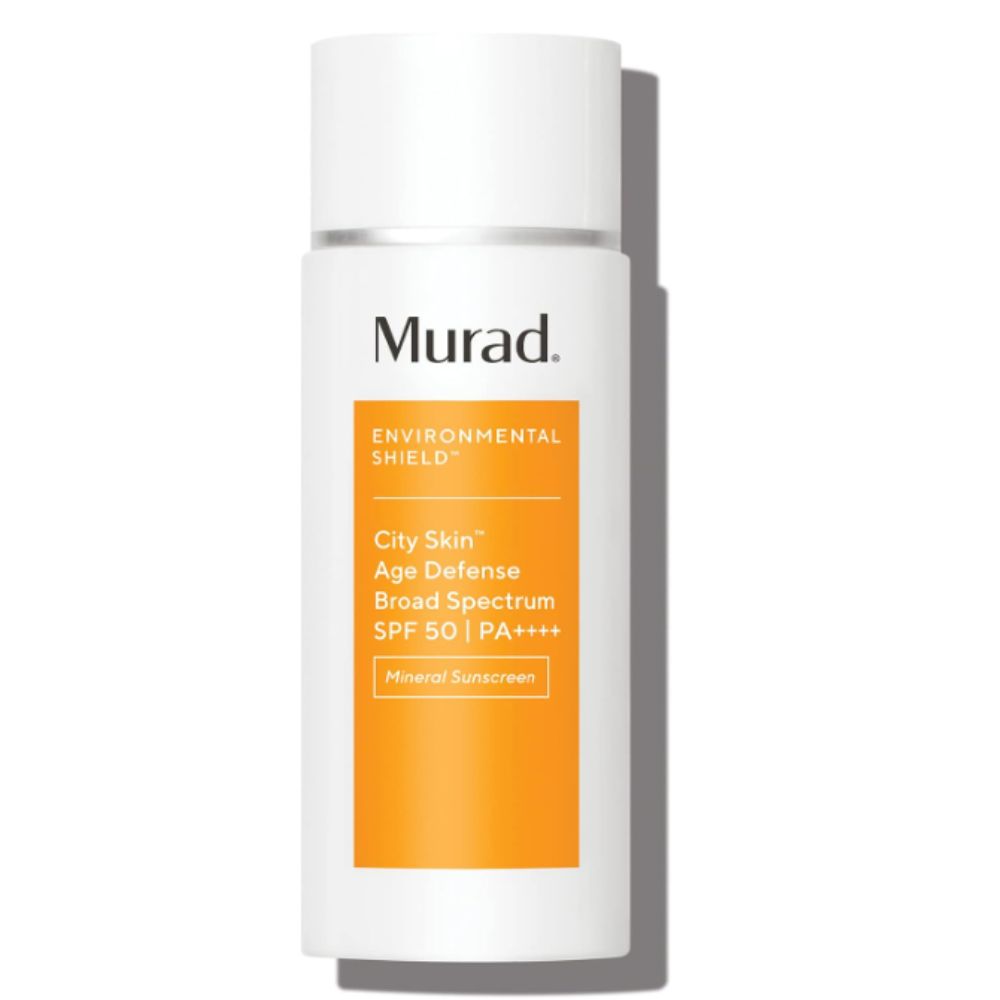
RRP: £69 | Texture: Cream
Murad's City Skin Age Defense SPF is an ideal choice for those who to protect their skin from the key causes of damage. Skin is shielded from both UVA and UVB rays, infrared radiation, pollution and blue light, while the lightweight and non-greasy formula sits well under makeup. All this makes it ideal for daily wear. This mineral formula has a peach tint and our tester didn't find it left a white cast on the skin. It's also free from alcohol and fragrance, making it a great option for sensitive skin types, while PA++++ also offers the highest level of protection from UVA rays alongside the SPF 50. In other words, while it's undoubtedly an expensive option, it packs a punch.
Pros: Great level of protection
Cons: More expensive than others
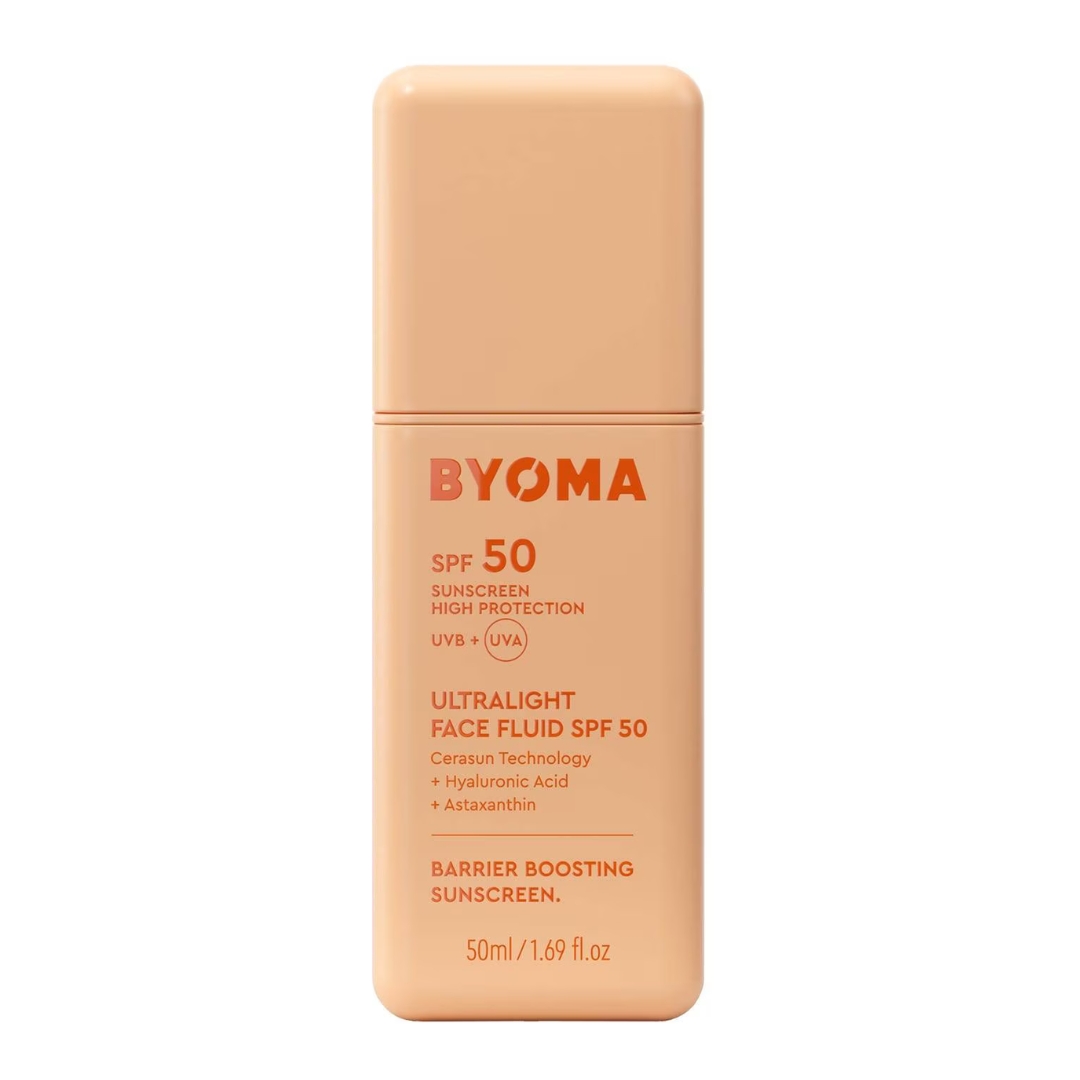
RRP: £14.99 | Texture: Lightweight fluid
Despite many sunscreen fluids boasting very runny, difficult to control formulas, BYOMA's Ultralight Face Fluid SPF50 Sunscreen has a slightly thicker easy-to-apply fluid texture that remains lightweight on the skin. Testing it on her sensitive, blemish-prone skin, Sennen praised this hydrating formula: "This peach-hued fluid glides onto the skin for a weightless feel, working to protect and moisturise the complexion, combat any white cast and impart an admirable healthy glow. I've worn this formula countless times, trialling it both underneath makeup and on no makeup days, all of which have resisted pilling, irritation and breakouts - whilst keeping my skin protected from sun burn."
Reasons to buy: Affordable, ultra lightweight and hydrating formula
Reasons to avoid: It can be leave the skin with a slight sticky feeling

RRP: £17 | Texture: Cream
CeraVe is another much-loved affordable skincare brand with a legion of loyal fans. Despite having a consistency that initially seems quite thick, it rubs in easily. The broad spectrum SPF moisturiser also features the brand's signature blend of three ceramides, which help support healthy skin barrier function. As well as the aforementioned ceramides, hyaluronic acid, niacinamide and vitamin E are also at play to help nourish and support the skin. All things considered, it's no surprise that this is a brand that dermatologists regularly recommend in their clinics.
Reasons to buy: Reasonably priced, dermatologist-recommended brand
Reasons to avoid: Thicker formula won't suit everyone
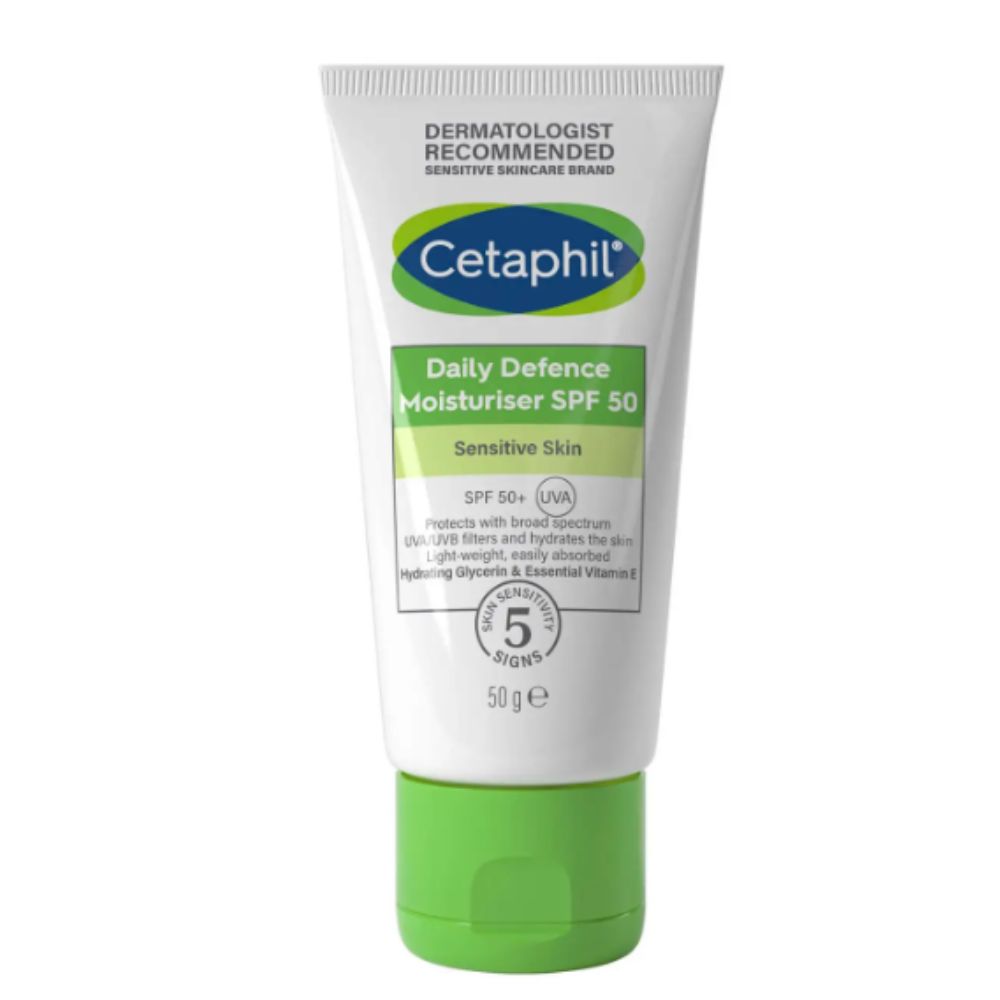
RRP: £16.50 | Texture: Lightweight cream
Not only does Cetaphil cater to sensitive skin types, it does so at very affordable prices. Ticking many of our boxes, it's gentle, fragrance-free, non-pore-clogging and utilises mineral UV filters, which usually pair well with easily irritated skin. The texture was bang-on for our tester's reactive complexion; a light, cooling cream that felt comfortable, hydrating and softening. It didn't feel like a sunscreen at all, thanks to its skincare ingredients like glycerin, which tackles signs of sensitivity like tightness and rough skin texture. Its consistency is on the thicker side, but it feels gorgeous to slather on.
Reasons to buy: Hydrating, high-factor SPF
Reasons to avoid: Tube is fairly small
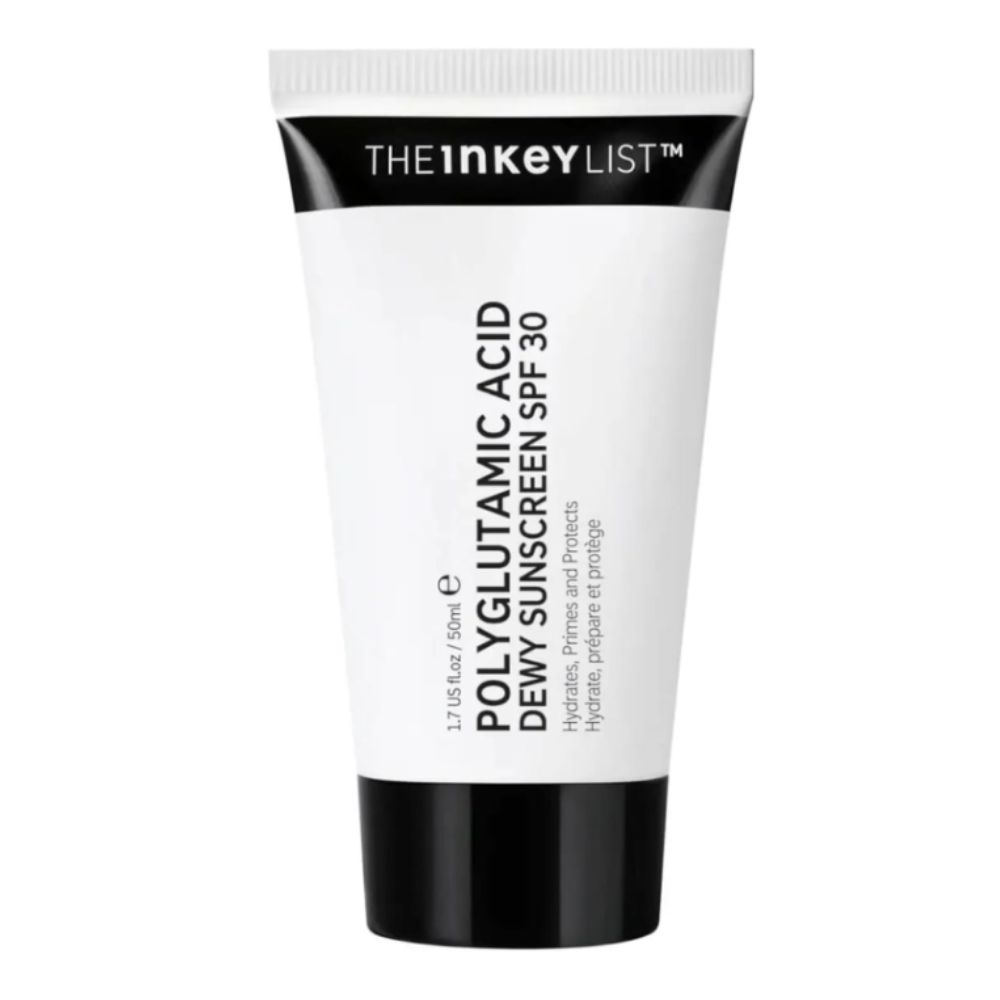
RRP: £15 | Texture: Thick cream
This product spells out its USP; it's a broad-spectrum formula with glycerin, squalene and polyglutamic acid to quench sensitive skin while protecting it. Our tester Rachael says, "This was my first time trying The INKEY List and I wasn't disappointed as far as a product for sensitive skin goes. My skin didn't react at all while I was using this. However, it is quite thick and took a little longer to apply and rub in compared to products such as the La Roche-Posay sunscreen. It also took a while to sink in, leaving my skin glowing white while the product settled." Our tester didn't find it wore so well under makeup, but we think it would suit someone with very dry skin that absorbs product easily.
Reasons to buy: Gentle on reactive skin
Reasons to avoid: Takes a while to absorb
How we tested the best sunscreens for sensitive skin
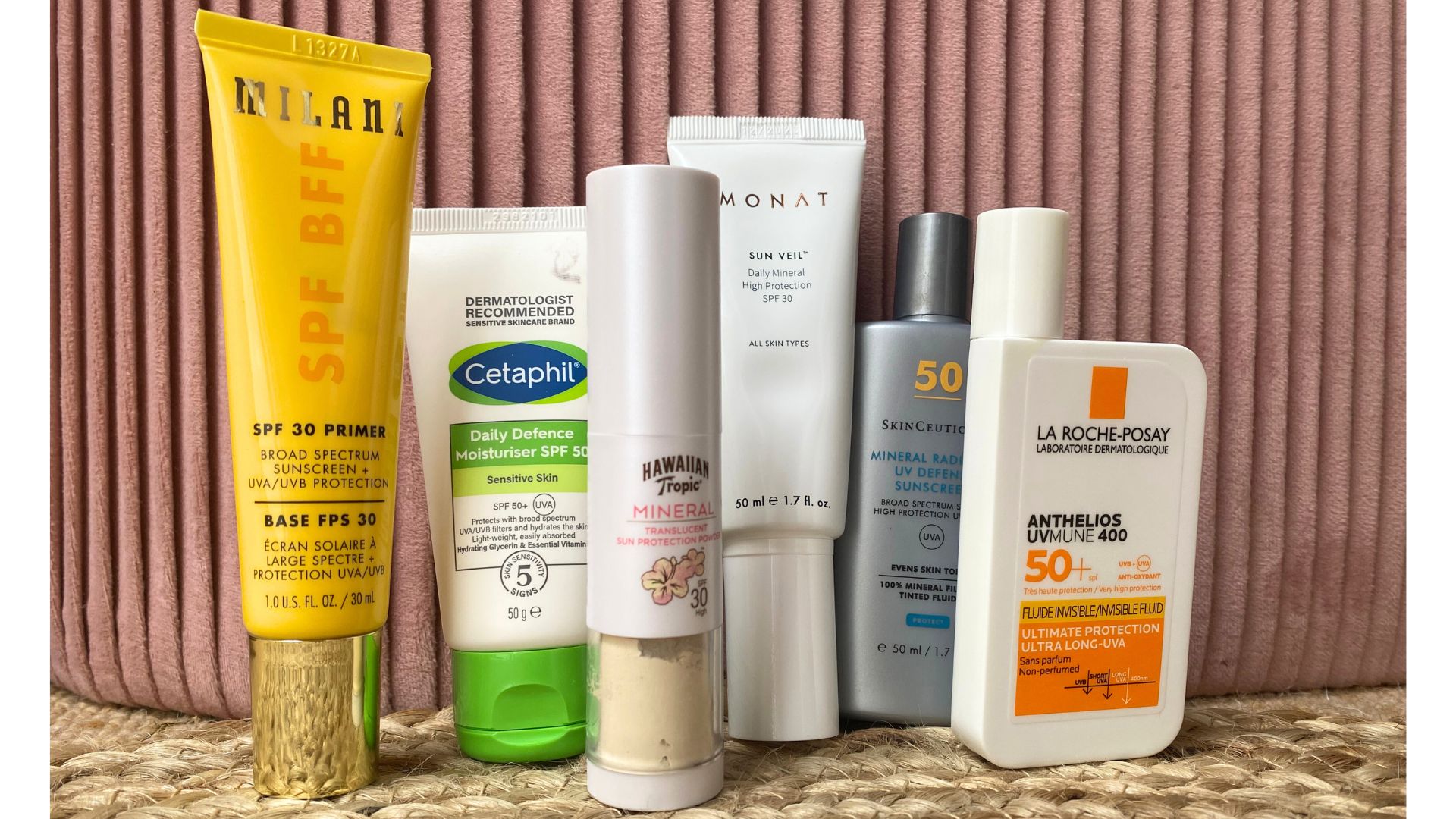
A selection of the best sunscreens for sensitive skin that we tested for this guide from (left to right) Milani, Cetaphil, Hawaiian Tropic, MONAT, SkinCeuticals and La Roche-Posay
Sensitive skin varies hugely in terms of what might "set it off", meaning finding the best sunscreens for sensitive skin isn't a one size fits all situation. With this in mind, we put dozens of formulas to the test with at least one full day of work each on multiple testers with various types of sensitivity. While assessing each formula, they paid close attention to a number of factors. Each one of the sunscreens in our guide made the cut because it impressed our testers based on the below criteria. We therefore deem them reliable, enjoyable to use, shout-out worthy sunscreens for sensitive skin.
- Ingredients and formulation: For example, skincare ingredients such as hyaluronic acid, or non-comedogenic properties
- Type of UV filters used: Mineral, chemical or a combination of both
- Level of protection: The SPF rating and broad spectrum protection (covering both UVA and UVB)
- Consistency and feel of the formula: For example, whether it was a lightweight fluid or a nourishing cream
- Ease of application: How it applied, how long it took to absorb and whether it left behind a white cast
- How it interacted with the skin: We noted whether products caused any irritation or breakouts, and how makeup applied over the top.
- Packaging: We considered how easy the packaging made the application and whether it was travel-friendly
- Price and value for money: Is the product genuinely worth investing in?
How to choose a sunscreen for sensitive skin
Once you know what to look for, there are several things to consider when it comes to picking the best sunscreen for your sensitive skin, specifically. The following list covers these key factors, according to the experts.
- Chemical vs physical: There are two types of sunscreens: chemical and physical. Very generally speaking, chemical-based sunscreens use chemicals like octinoxate, avobenzone and oxybenzone to absorb the rays of the sun and convert them into heat. Physical sunscreens work by bouncing away the sun's UV rays from the skin's surface. "I would recommend seeking physical sunscreens," explains Dr Vig. "They are a gentler option and contain ingredients such as zinc oxide and titanium dioxide, which are less likely to cause irritation as chemical sunscreens do."
- Consider fragrance-free: "Fragrance is a blanket term for essential oils and perfumes, so it’s difficult to discern exactly what ingredients are being included and how your skin may react," notes Cindy Ha, lead aesthetician at Fairmont Spa Century Plaza. Perfume in skincare can also cause allergic contact dermatitis, which manifests as red, blotchy, scaly patches that are itchy. Of course, it is possible that something else entirely may cause irritation in a non-fragranced skincare product, which is why it's always worth doing a patch test before slathering a new product all over your skin to check for any signs of a reaction.
- Be mindful of sensitising ingredients: We're stating the obvious here, but if you know that certain skincare ingredients are triggers for your skin to react badly, ensure that any potential new sunscreen doesn't contain them by checking the ingredients list before checking out.
Your sunscreen for sensitive skin FAQs, answered
Do you need to wear sunscreen every day?
Absolutely. Firstly, sunscreen will protect your skin from UV damage and burning, which increases your risk of skin cancer. But not only that, UV radiation also causes photoageing (accelerated skin ageing), so applying sunscreen 365 days a year will help to shield your skin and prevent this, too. Look for a broad spectrum sunscreen as this term means it will protect the skin from both UVA and UVB rays.
Does sunscreen expire?
All beauty products have a shelf life so, yes, sunscreen does expire. In fact, it's all the more important here as, if the UV filters are past their best, your skin won't be protected from the sun's damaging rays.
One of two symbols on the product packaging (both of which are visible below) indicates how long a skincare product lasts. An open box containing a number and the letter M – e.g. "12M" – means the product should be used within 12 months of opening. In this case, it's sensible to write the day you opened it somewhere on the packaging so you don't forget.
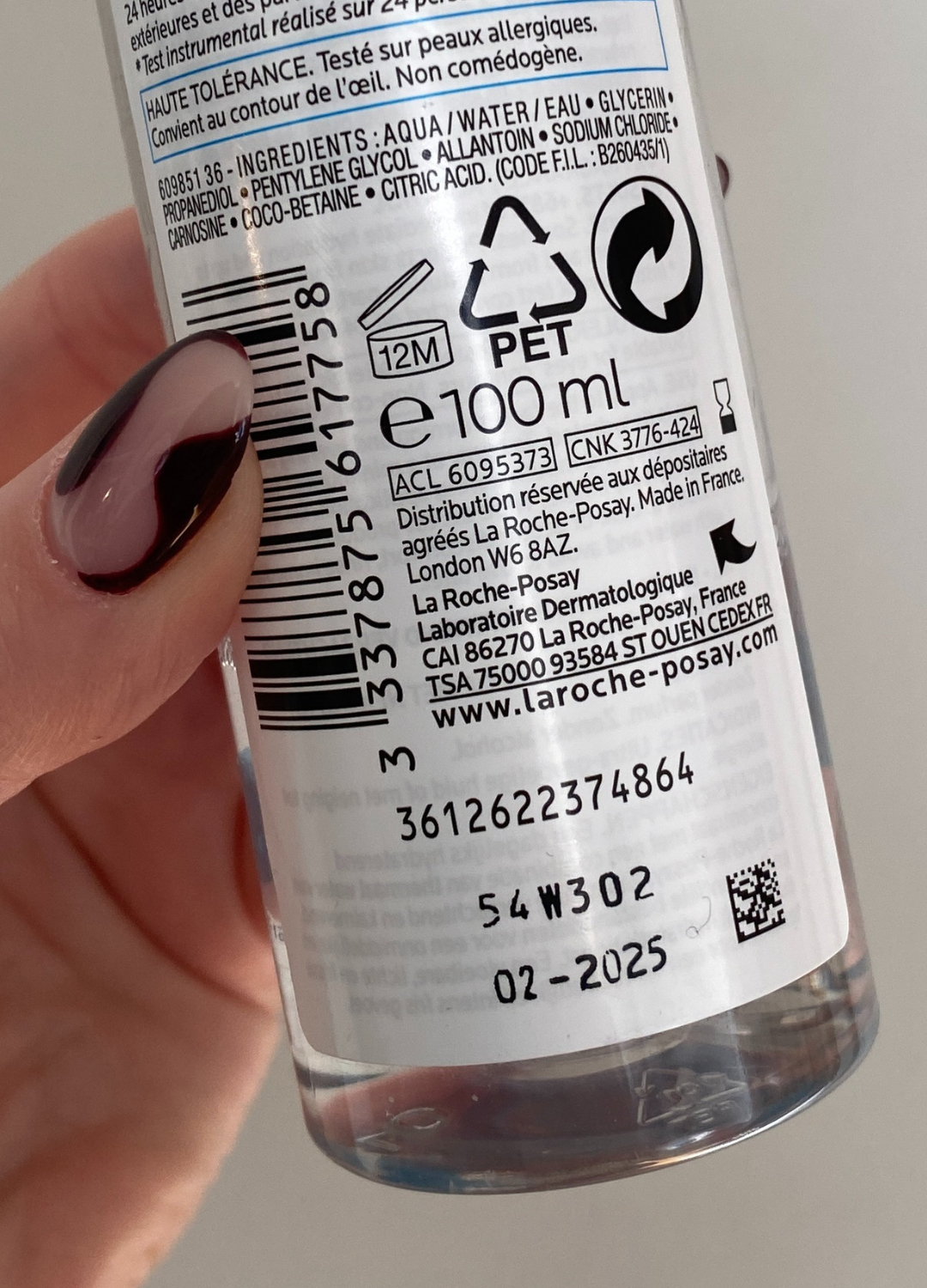
The back of a La Roche-Posay skincare product showing both expiry symbols and a use-by date
The other symbol to take note of is a black and white egg timer, which indicates the product has a max shelf life of 30 months. It will therefore also have a use-by date on the packaging; both symbols and a use by date are visible on the above product as an example.
If the use by date is on the external packaging, such as a cardboard box, but not the bottle, be sure to write it on the actual product to remind you when it's time to dispose of any remaining sunscreen and buy a new one. But as sunscreen should be applied daily, it's unlikely to get to that point!
Sign up to our free daily email for the latest royal and entertainment news, interesting opinion, expert advice on styling and beauty trends, and no-nonsense guides to the health and wellness questions you want answered.

Michelle Rostamian is a Los Angeles-based beauty writer with 10 years of experience in the beauty industry. She began her career as a publicist, content writer, and social media manager, representing beauty brands and industry professionals. Currently, she is an editor and writer on all things makeup, beauty, skincare, and lifestyle. Michelle graduated from the University of California, Los Angeles with a B.A. in Communications. She has bylines at Cosmopolitan, Elle, Marie Claire, Allure, The Zoe Report, HelloGiggles, Yahoo, Byrdie, Well+Good, Reviewed, Women’s Health, Runner’s World, The Girlfriend, and more.
- Sennen PrickettDigital Beauty Writer
- Lucy Abbersteen

